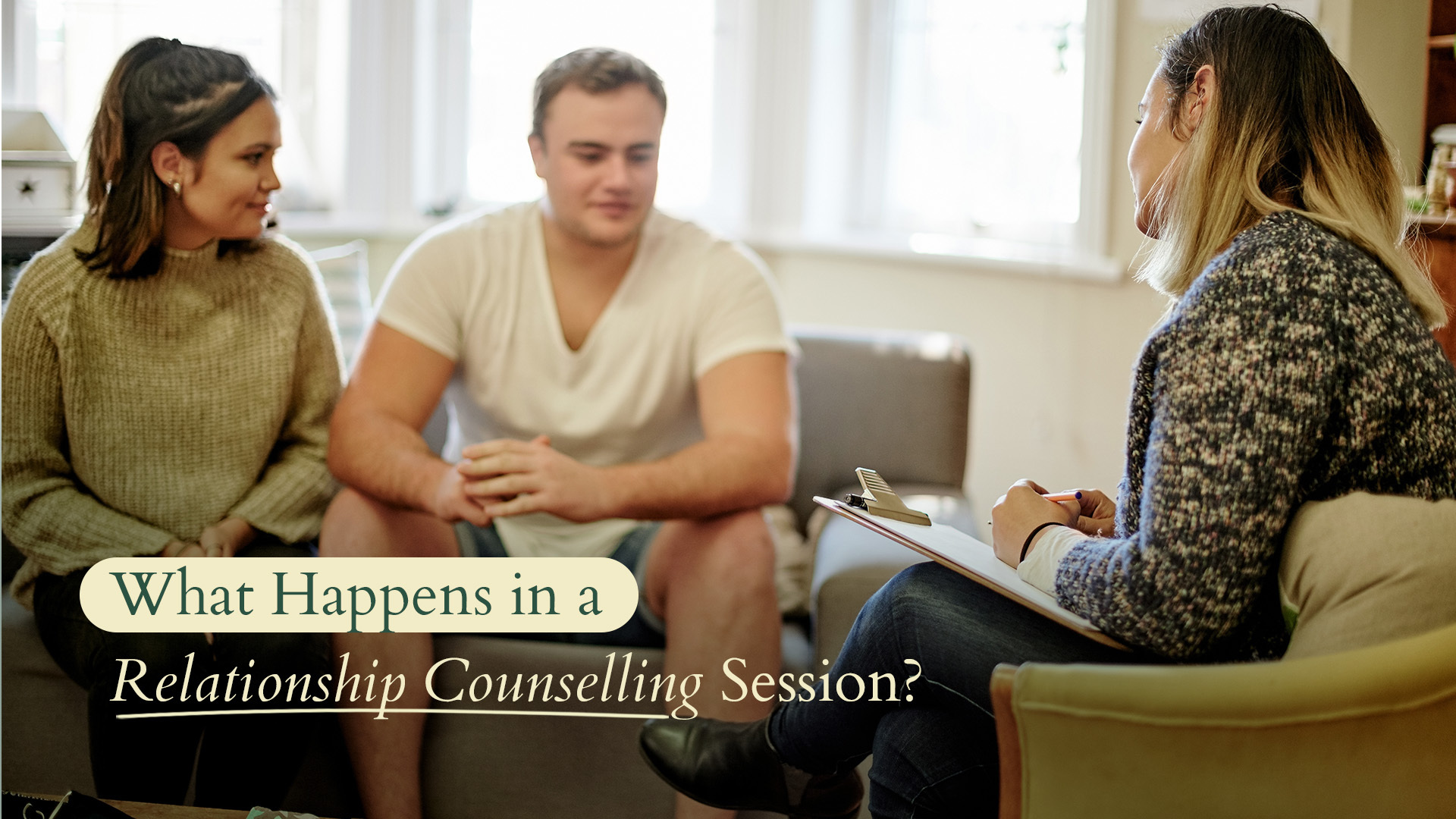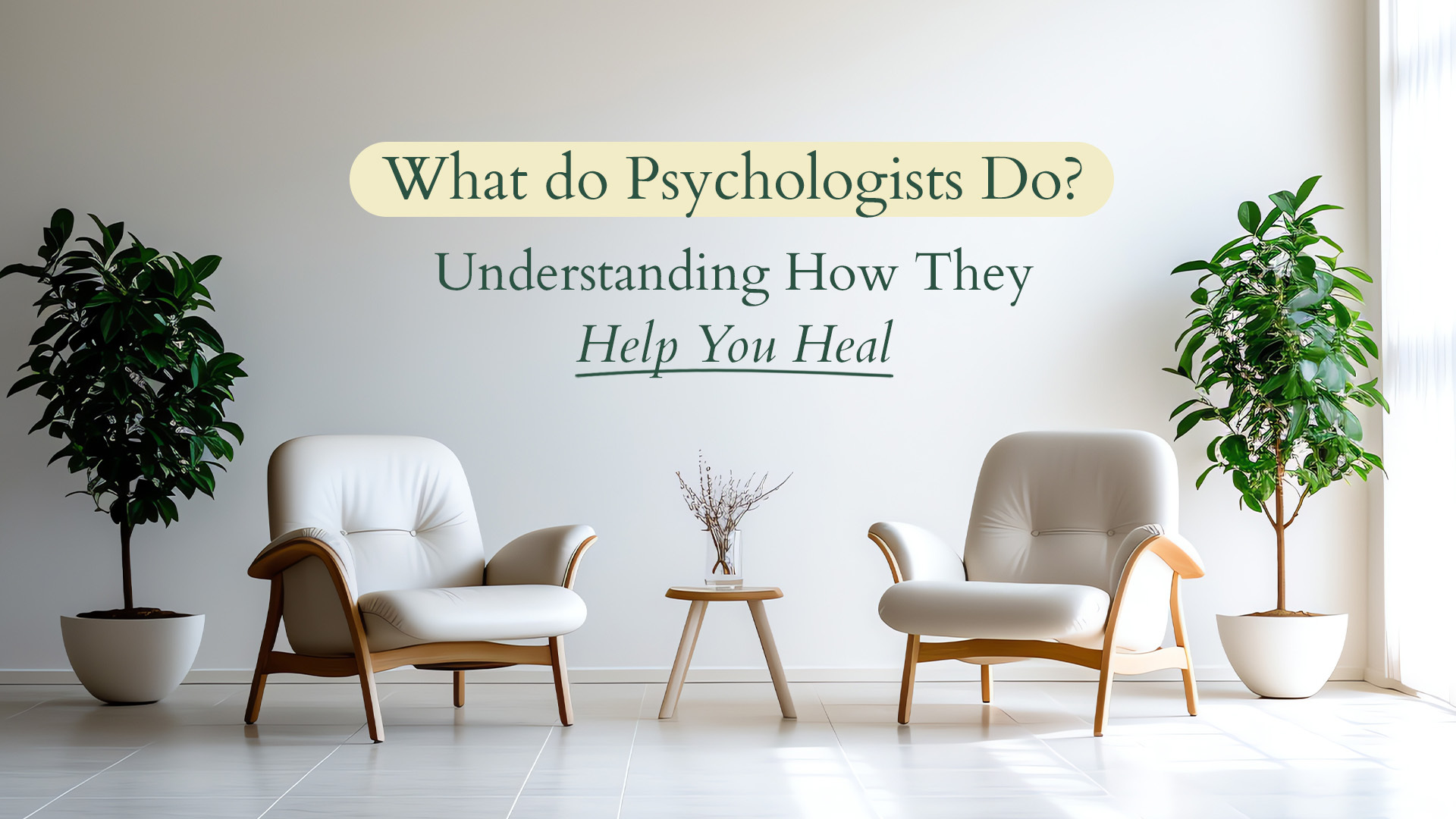

Psychologists help people understand and manage their thoughts, emotions, and behaviours to improve wellbeing. They work with individuals, couples, and families to address issues such as anxiety, depression, stress, and relationship challenges. Using evidence-based therapies like cognitive behavioural therapy and mindfulness, psychologists teach coping strategies, build resilience, and support personal growth. They also provide assessments and guidance to help people lead more balanced, fulfilling lives.
Every now and then life feels loud on the inside. You might notice patterns you want to change, worries that don’t switch off, or a sense that you’re not yourself lately. If you’ve ever wondered what a psychologist actually does and whether they could help, the short answer is yes: psychologists work with you to understand what’s going on beneath the surface and to create practical, lasting change.
A psychologist is trained to explore the link between thoughts, feelings, behaviour and the environment you live in. In a confidential, non‑judgemental space, they help you unpack what’s been happening, make sense of it, and then build a plan that fits your life. That might include learning skills to manage anxiety, processing a difficult experience, improving relationships, supporting a child’s emotions, or navigating a big life transition. At PsychologyCare, we see children, teens and adults, and tailor the approach to each person’s goals, culture and stage of life.
Your first session is about slowing down and understanding the whole picture. Your psychologist will ask about what brought you in, what’s helped or not helped so far, your strengths, and what a good outcome would look like. Together you set clear goals, and you’ll leave with a first step that feels doable. Over time the work we do together might include noticing and reshaping unhelpful thought patterns, learning emotion‑regulation tools, practising communication or problem‑solving skills, or gently processing events that still feel heavy.
Psychologists use evidence‑based therapies. That simply means approaches that have been tested in research and shown to help.
Common examples include cognitive behavioural therapy to untangle unhelpful thinking loops, acceptance and commitment therapy to reduce struggle with difficult feelings while moving toward your values, trauma‑focused therapies to process painful memories safely, dialectical behaviour therapy skills for emotion regulation and relationships, and mindfulness‑based strategies to steady the nervous system. Your psychologist will explain what they’re using and why, and they’ll check in often to make sure the approach fits you.
Sometimes we use standardised tools such as questionnaires, interviews or cognitive tests to clarify what’s going on and to guide next steps. For children, this might inform school support or adjustments. For adults, it can clarify a diagnosis, highlight strengths to build on, or help plan therapy. Assessment isn’t about labelling you; it is about mapping the terrain so treatment is targeted and fair.
People see psychologists gold coast for many reasons. You might come for anxiety, panic, low mood or burnout. You might want to heal from trauma, sharpen boundaries, improve sleep, or reduce anger and conflict. Parents often seek support with a child’s big emotions, behaviour or attention. Teens come for identity worries, school stress, friendships or family tensions. Others come not because there is a crisis, but because they want to grow, reset habits, and live more intentionally. Whatever the starting point, you are welcome as you are.
What actually happens between sessions matters too. Therapy works best when what you practise in the room shows up in your life. That’s why psychologists offer practical exercises: a short breathing practice you can use before a stressful meeting, a values check‑in to guide decisions, a thought‑record to test unhelpful predictions, or small relationship experiments to try between appointments. We celebrate the wins and learn from the bumps without judgement.
Psychologists also work alongside other people who care about your wellbeing. With your consent, we might update your GP, collaborate with a school, touch base with a psychiatrist about medication, or communicate with support coordinators. That team approach keeps your care consistent and reduces the pressure on you to carry all the details.
In Australia, especially psychologists Gold Coast complete an accredited sequence of university study and supervised practice before registration with the national regulator, and they keep their skills current through ongoing professional development. Some complete additional postgraduate training and a registrar program in a specific area, such as clinical psychology. All of this exists to make sure you receive safe, ethical, effective care.
If you decide to start, you won’t be expected to have the perfect words or a neat timeline. You just need to show up as you are. A good psychologist will move at your pace, explain the plan in plain language, and keep the work practical. Change doesn’t have to be dramatic to be meaningful; often it looks like steadier mornings, kinder self‑talk, clearer boundaries and more room for the things that matter.
If you’ve been carrying something heavy or you’re simply ready for a reset, you don’t have to do it alone. Reaching out can be the moment things start to make sense again, one honest conversation at a time.










